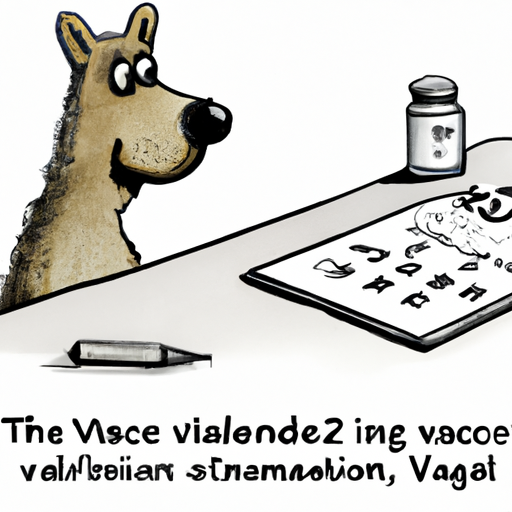Understanding the Importance of Rabies Vaccination
Rabies is a fatal disease, and sadly, once symptoms appear, the outcome is almost always death. As a responsible caregiver, you must understand the importance of vaccinating your pet. Not only does it protect your dog, but it also safeguards your family, and the community at large.
Rabies is a zoonotic disease, which means it can be transmitted from animals to humans. In many countries, including the United States, rabies vaccination for dogs is not just recommended – it’s the law.
The Timeline for Rabies Shots
The timing of the rabies vaccination primarily depends on your dog’s age and the legislation in your country or state. Generally, puppies receive their first rabies shot at 14-16 weeks. They then get a booster one year from the initial vaccination. Afterwards, they typically receive further boosters every one to three years.
Here is a simple timeline:
- First vaccination: 14-16 weeks
- First booster: 1 year later
- Subsequent boosters: Every 1-3 years
This schedule can vary based on local laws, your vet’s advice, and the specific vaccine used.
Factors that Influence the Rabies Vaccination Schedule
Different factors can influence the vaccination schedule. These include:
-
Age: Puppies should be at least 14 weeks old before receiving their first rabies vaccination.
-
Health: Your vet will assess your dog’s health before administering the vaccine. If your pet is ill, the vaccination may be delayed.
-
Local laws: Laws regarding rabies vaccination can vary significantly. Some places require yearly shots, while others mandate them every three years.
-
Lifestyle: Dogs that spend a lot of time outdoors or in areas where rabies is common may need more frequent boosters.
Here’s a quick reference table:
| Factors | Description |
|---|---|
| Age | Puppies should be at least 14 weeks old for their first shot |
| Health | Dogs should be in good health prior to vaccination |
| Local laws | Vaccination frequency may be dictated by state or country law |
| Lifestyle | Dogs in high-risk areas or those who spend a lot of time outdoors may need more frequent vaccinations |
Side Effects of Rabies Vaccination
Like any vaccination, the rabies shot can have side effects. Most are mild and go away on their own. These may include:
- Mild fever
- Reduced appetite
- Lethargy
- Swelling or redness at the injection site
However, in rare cases, serious reactions can occur. If your dog shows signs of difficulty breathing, severe vomiting, or facial swelling, seek immediate veterinary care.
Frequently Asked Questions
Q: Can I give my puppy his rabies shot at home?
A: No. Rabies vaccinations should always be administered by a licensed veterinarian.
Q: Is the rabies vaccination always effective?
A: While no vaccine is 100% effective, the rabies vaccine is highly successful at preventing the disease.
Q: What happens if a vaccinated dog bites someone?
A: Even if your dog is vaccinated, it should be confined and observed for 10 days if it bites someone.
Remember, as a caregiver, keeping your dog healthy and safe is your responsibility. Be diligent about vaccinations, and consult your vet with any concerns or questions.



